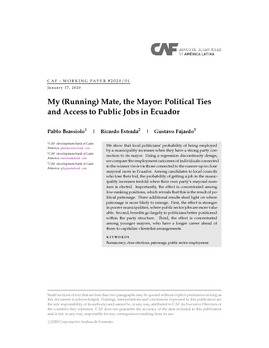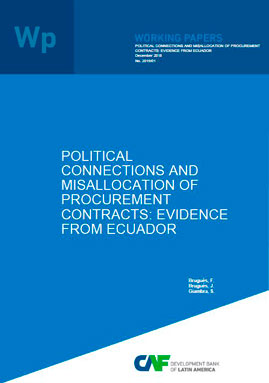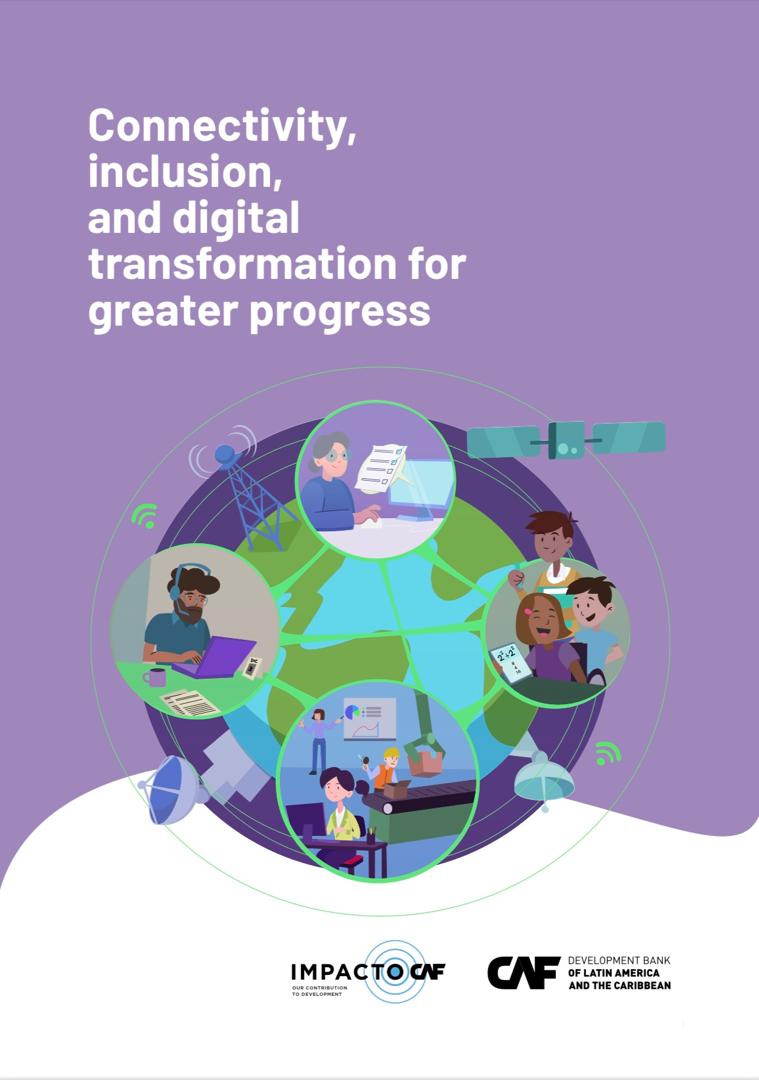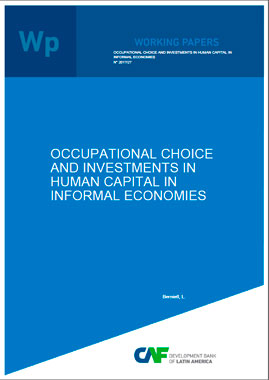Mostrar el registro sencillo del ítem
My (Running) Mate, the Mayor: Political Ties and Access to Public Jobs in Ecuador
| dc.contributor.author | Brassiolo, Pablo | |
| dc.contributor.author | Estrada, Ricardo | |
| dc.contributor.author | Fajardo, Gustavo | |
| dc.coverage.spatial | América Latina y el Caribe | es_ES |
| dc.coverage.spatial | Ecuador | es_ES |
| dc.date.accessioned | 2020-01-21T14:19:50Z | |
| dc.date.available | 2020-01-21T14:19:50Z | |
| dc.date.issued | 2020-01-17 | |
| dc.identifier.citation | Brassiolo, P., Estrada, R., & Fajardo, G. (2020, January 17). My (Running) Mate, the Mayor: Political Ties and Access to Public Jobs in Ecuador. Caracas: CAF. Retrieved from https://scioteca.caf.com/handle/123456789/1521 | en_GB |
| dc.identifier.uri | https://scioteca.caf.com/handle/123456789/1521 | |
| dc.description.tableofcontents | We show that local politicians’ probability of being employed by a municipality increases when they have a strong party connection to its mayor. Using a regression discontinuity design, we compare the employment outcomes of individuals connected to the winner vis-à-vis those connected to the runner-up in close mayoral races in Ecuador. Among candidates to local councils who lose their bid, the probability of getting a job in the municipality increases tenfold when their own party’s mayoral nominee is elected. Importantly, the effect is concentrated among low-ranking positions, which reveals that this is the result of political patronage. | es_ES |
| dc.language.iso | en | es_ES |
| dc.publisher | CAF | es_ES |
| dc.subject | Democracia | es_ES |
| dc.subject | Gobernabilidad | es_ES |
| dc.subject | Políticas públicas | es_ES |
| dc.title | My (Running) Mate, the Mayor: Political Ties and Access to Public Jobs in Ecuador | es_ES |
| dc.type | workingPaper | es_ES |
| dc.publisher.city | Caracas | es_ES |
Ficheros en el ítem
Este ítem aparece en la(s) siguiente(s) colección(ones)
-
6.1 Documentos de trabajo en investigación socioeconómica
En esta colección se encuentran los documentos de trabajo sobre temas económicos y sociales prioritarios para la región.





